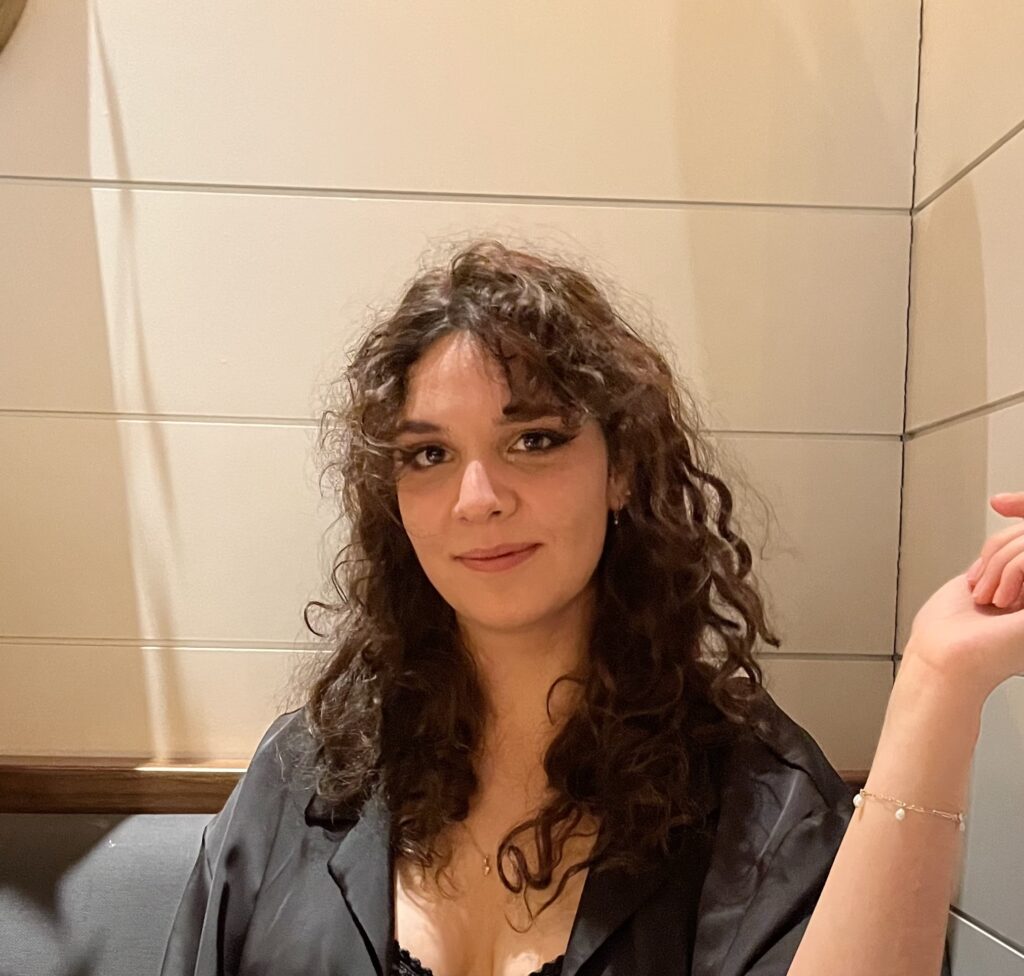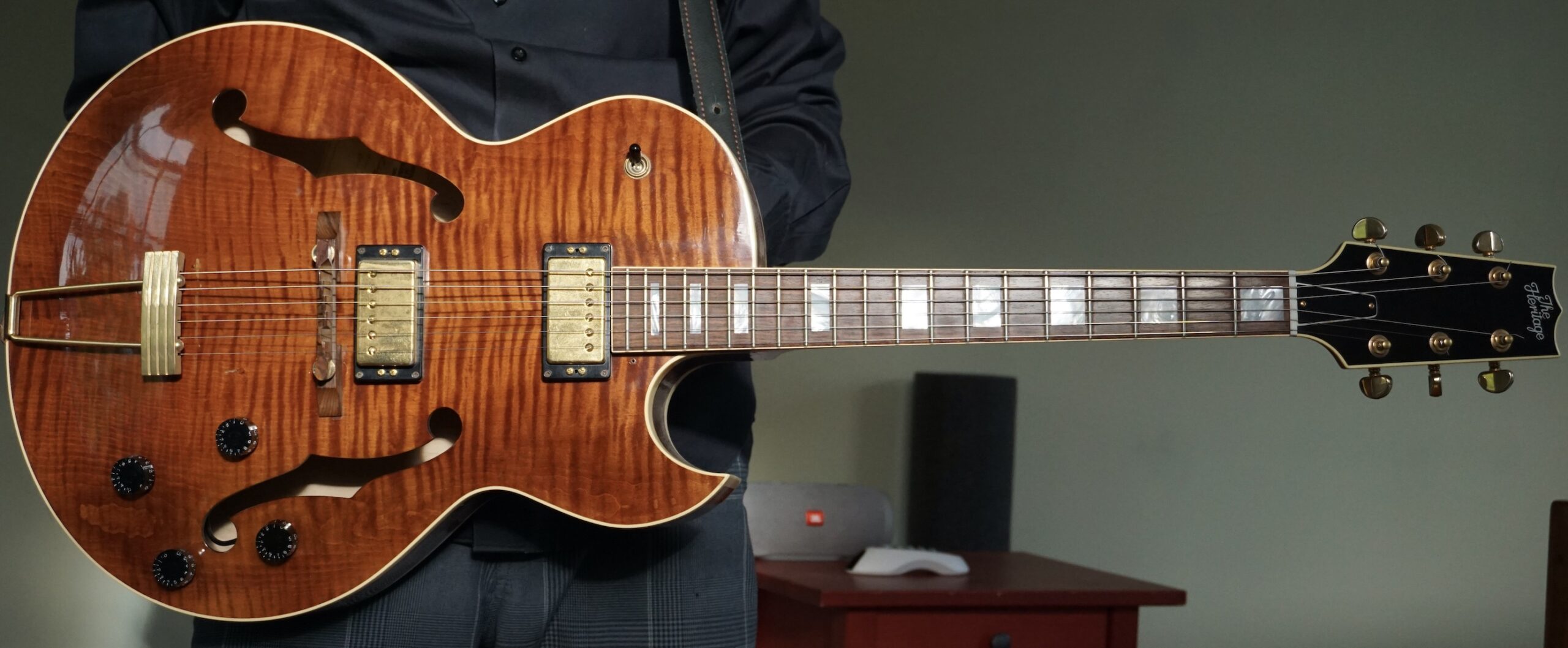The mission of Music Ecosystem Institute is to foster better support systems for musicians—and the individuals and organizations who work with them—through improved law and policy informed by best-in-class research and education activities.
However, MEI is more than a collection of articles and analyses. Behind every post, there are dedicated individuals with diverse backgrounds, expertise, and a shared love for music. We want to take a moment to introduce you to the individuals who contribute their knowledge and perspectives.
Whether you’re a musician, legal scholar, industry professional, or simply someone with a love for music, we hope that by sharing a bit of ourselves we can foster a sense of connection and trust within our community.
MEI’s Legal Fellow

Sarah Gilbert (she/her), Legal Fellow, is a recently licensed attorney and a graduate of George Mason University, Antonin Scalia Law School. While attending GMU Law, Sarah studied under the founder of MEI, Seán O’Connor, whose passion for music and intellectual property reignited her desire to pursue music law as a career. Sarah also attended George Mason University for her undergraduate studies, earning a degree in Social Innovation and Entrepreneurship with a minor in Well-being studies.
MEI: What sparked your interest in the intersection of music, law, and policy, and how did it lead you to working at MEI?
Sarah Gilbert: I grew up in a house of musicians and artists, so I was always surrounded by creatives and developed a deep love for music. I had also known from a young age I wanted to be a lawyer. At some point, I thought if I followed my goals to be a lawyer, I would need to move my love and passion for music to the sidelines. Always being a hardcore fangirl, Music dominates almost every aspect of my life, so I was struggling to figure out how to keep my love for music separate from my career goals. This changed once I took Intellectual Property with Sean O’Connor. I was inspired to see someone who was a musician and a lawyer at the same time using their legal skills and passion for music to create a difference in the music industry. I discovered how much I enjoyed learning and talking about intellectual property through O’Connor’s teaching, and they helped me understand my love for music was not something I should keep to the side, but rather something I should use to make myself a more dedicated and passionate advocate.
MEI: What’s the first album or song you remember falling in love with, and why does it hold a special place in your heart?
Sarah Gilbert: There are so many songs and albums I’ve fallen in love with throughout the years, but one song which still gives me chills even now is, “Me and Your Mama” by Childish Gambino. This song marked a transition in Gambino’s discography, as most of his early work was mainly rap and R&B. There is something so haunting about this song, and I always feel some guttural emotion which I have only been able to experience through music.
MEI: Are there specific areas within music law and policy that you find particularly fascinating or challenging to navigate?
Sarah Gilbert: One of the areas I find fascinating to navigate is the metaverse. For the music industry, the metaverse is one of the most interesting innovations. With every technological advancement there will always be serious challenges and ethical concerns, and the metaverse is no exception.
As a fan, the metaverse provides another avenue to communicate with artists who might not have been accessible before through things like virtual concerts. The metaverse has the capabilities to increase a musician’s audience and allows for more creativity. There have been concerts offered by big artists on platforms like Roblox, where artists themselves would play along with their fans, as well as VR concerts where fans get to experience a concert like they are actually there in person. For fans who are unable to travel to shows or meet and greets due to financial constraints or disabilities, etc., the metaverse is a method to connect with their favorite artists despite the circumstances.
However, currently within the metaverse, the legal protection and rights of artists who create their work digitally or move their work onto the digital platform are still somewhat unclear. Additionally, there are some ethical concerns within the industries who are already known to treat artists as commodities, who might create virtual artists to replace current human artists.
MEI: Are there any artists or bands that you’re currently obsessed with, and what about their music resonates with you?
Sarah Gilbert: For anyone who knows me personally, this will not be surprising, but one group I have been deeply invested in, is the group NCT (Neo Culture Technology). I often joke about this group getting me through law school, but I am truly grateful for finding this group when I did. The group NCT is essentially a collective of several sub-groups (NCT 127, NCT Dream, WayV, and NCT U), with each sub-group having its own style, and members from each group come together under the name NCT U to collaborate on absolute bangers. In the current industry, NCT has been described as an acquired taste, and “neo”. Through the members of the group and their dedication and freedom to express themselves, I find myself inspired to embrace my own likes and personality in the same “neo” way.
MEI: Can you share any noteworthy cases or developments in music law and policy that have influenced your perspective or writing?
Sarah Gilbert: One case which has had a huge impact on my perspective is not technically music-related, but rather is a case dealing with choreography. Outside of law school, I became very involved in the dance community within the DMV area, which prompted me to spend some time learning about the legal aspects of protecting choreography. One of the biggest cases in the last few years dealing with choreography is Hangami v. Epic Games Inc., and the case was approved for appeal, then Hanagami dropped the suit in February 2024.
I am disappointed the case did not fully go to appeal because with the initial decision, it was apparent the judges’ understanding of dance and the industry of dance was very outdated and would not follow the industry practice within the dance community. I found myself wanting to sit down with the judges, and open up Youtube to show them the inspired dancer and explain why their work fits the legal requirements for protection. It was frustrating to think possibly a misunderstanding of the value of the art and lack of awareness of the industry practices within dance led to a decision which did not protect art fully eligible for protection. For myself and my writing, I want to spotlight the recognized practices and standards within the artist’s communities to the legal professionals who help advocate and interpret the law.
MEI: Are there any overarching trends or issues in the music industry that you believe warrant more attention from both legal professionals and the general public?
Sarah Gilbert: Yes! Besides AI, which is a major point of discussion for everyone in almost every industry, there are a couple of major bills which need more support and attention from the public. One of them is the Restoring Artistic Protections Act, also known as the RAP act. This bill would stop the use of an artist’s lyrics as evidence in criminal and civil proceedings. On the record, there have been approximately 500 instances where prosecutors were allowed to use an artist’s lyrics as evidence against the artist in court. There seems to also be an unequal amount of cases where the artist is primarily a rapper, which has had a disproportionate effect on black men. Although some may argue this is merely a coincidence, it’s more likely this is just another example of the racial inequality in the legal system.
MEI: What advice would you give to musicians, industry professionals, or policymakers navigating the legal landscape of the music industry?
Sarah Gilbert: The most important advice I would give to musicians would be to take time to learn their basic legal rights when it comes to protecting their art. A good lawyer will advocate on your behalf and for your interests, but no one will care about your interests as much as yourself. It’s very important to be able to have a decent understanding of the legal and business side of being a musician. There are many good resources to get a basic understanding, including workshops offered by the Legal Non-profits which are specifically for non-lawyers. We hope MEI can also be a good resource for musicians and industry professionals to turn to when they need guidance for finding resources.
MEI: Finally, what role does music play in your daily life, outside of your professional endeavors?
Sarah Gilbert: I always get emotional talking about how much music plays a role in my life because music is my everything. Music has gotten me through every hard moment in my life and been the background track in every happy moment in my life. Whenever I need time to cry or I need to be hyped up, I turn to music to help me express and get into a certain mindset. It is the way I communicate and relate to others; I have made so many deep connections based on a shared love for an artist. I use music to mark and color certain experiences in my life; I have songs tied to every season of my life, and I can use these songs to reflect and revisit my memories. There isn’t one part of my life where music is not somehow present.
